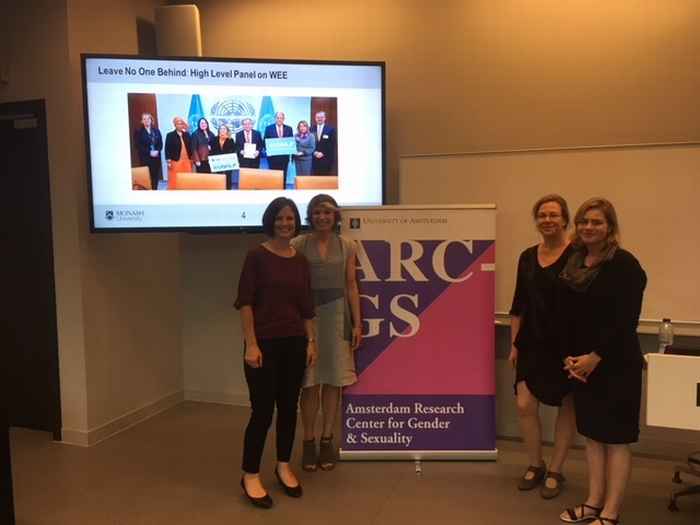“Inclusive Economies and Enduring Peace: What Difference Could Feminist Political Economy Make?” Lecture by Professor Jacqui True (Monash University, Melbourne)
By Lucy Hall
The Women, Peace and Security (WPS) Agenda represents the culmination of feminist activism around the need for the UN Security Council to recognize women as agents of peace and transformation in times of violence and conflict while also recognizing that there are particular forms of violence that affect women and girls. The 2015 report on the implementation of the WPS Agenda noted that ‘the recognition that peace is inextricably linked with gender equality and women’s leadership was a radical step for the highest body tasked with the maintenance of international peace and security’ (2015: 5). Yet, as Professor Jacqui True argued in her lecture: ‘Inclusive Economies and Enduring Peace: What Difference Could Feminist Political Economy Make?’ a feminist political economy approach is not (yet) an explicit feature of the WPS Agenda. This means that there is a significant lack of policy and practice attuned to the structural and material basis of violence.
